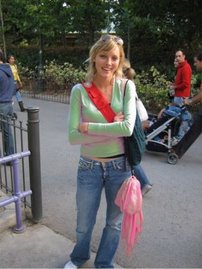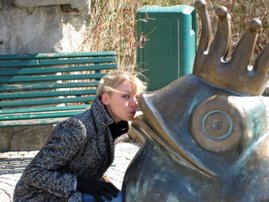Last week, our task was it to contribute to a public wiki (EduTech Wiki on educational technologies). In my eyes, it was a great experience because I contributed actively in the process of worldwide information sharing. In other words, I wrote something that might be useful and interesting for other people.
On Monday, I usually attend the wiki course, that is a lesson in which we develop wikipages on different topics. Every member of the group contributes to the different pages and we always come up with a lot of interesting information. At the beginning, it was difficult to structure the pages in an appropriate way, but we soon started to improve our skills.
We realized that, in order to avoid repetitions and annoy the readers, it is very important to read what the peers have written before. This basic rule was fundamental for the contribution to the public wik,i as well: I first read carefully what others had already written and than added new pieces of information.
One big difference between our university wiki and the public wiki is certainly the audience. I think most of us have (consciously or unconsciously) a certain readership in mind when they write something. When I do my contribution to the university wiki page I know that, with a few exceptions, only my teacher and classmates are going to read what I have written. This does not mean that I work less, but I know that if they do not understand something they can always ask for further explanations. This not possible when you write on a public wiki, as the readership is much larger and you have to write in such a way that it can be understood by the majority of the readers. In order to achieve this aim, I sent an e-mail with the my contribution to two fiends of mine and asked them about their opinion. This was a good way of getting useful feedback. In addition, our classmates gave us useful tips of how to improve the page.
I have to say that I learned a lot about wikis during this semester attending the wiki lessons and now I am even able to contribute to a public wiki and share information in an active way. To sum up, the most important thing is it to keep in mind the readership, trying to explain the ideas in a clear and structured way. Moreover, things are much more easier if someone gives you feedback.
It was a nice experience
Susanne






